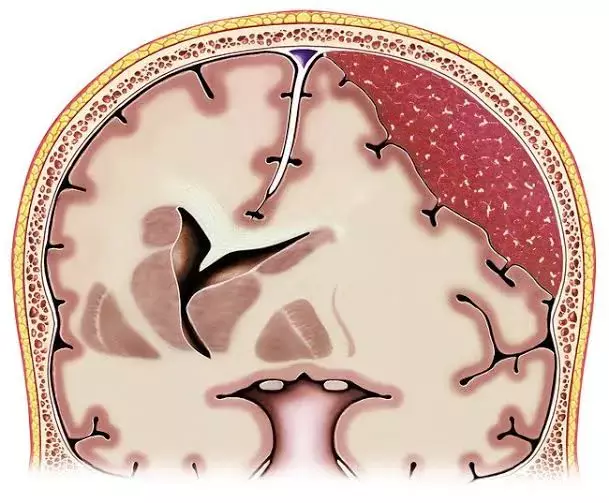- Home
- Medical news & Guidelines
- Anesthesiology
- Cardiology and CTVS
- Critical Care
- Dentistry
- Dermatology
- Diabetes and Endocrinology
- ENT
- Gastroenterology
- Medicine
- Nephrology
- Neurology
- Obstretics-Gynaecology
- Oncology
- Ophthalmology
- Orthopaedics
- Pediatrics-Neonatology
- Psychiatry
- Pulmonology
- Radiology
- Surgery
- Urology
- Laboratory Medicine
- Diet
- Nursing
- Paramedical
- Physiotherapy
- Health news
- Fact Check
- Bone Health Fact Check
- Brain Health Fact Check
- Cancer Related Fact Check
- Child Care Fact Check
- Dental and oral health fact check
- Diabetes and metabolic health fact check
- Diet and Nutrition Fact Check
- Eye and ENT Care Fact Check
- Fitness fact check
- Gut health fact check
- Heart health fact check
- Kidney health fact check
- Medical education fact check
- Men's health fact check
- Respiratory fact check
- Skin and hair care fact check
- Vaccine and Immunization fact check
- Women's health fact check
- AYUSH
- State News
- Andaman and Nicobar Islands
- Andhra Pradesh
- Arunachal Pradesh
- Assam
- Bihar
- Chandigarh
- Chattisgarh
- Dadra and Nagar Haveli
- Daman and Diu
- Delhi
- Goa
- Gujarat
- Haryana
- Himachal Pradesh
- Jammu & Kashmir
- Jharkhand
- Karnataka
- Kerala
- Ladakh
- Lakshadweep
- Madhya Pradesh
- Maharashtra
- Manipur
- Meghalaya
- Mizoram
- Nagaland
- Odisha
- Puducherry
- Punjab
- Rajasthan
- Sikkim
- Tamil Nadu
- Telangana
- Tripura
- Uttar Pradesh
- Uttrakhand
- West Bengal
- Medical Education
- Industry
Treated Chronic Subdural Hematoma patients show worse Cognitive Status after 3 months

A recent study conducted in Netherlands, and published in Acta Neurochirurgica, suggests that a large number of patients with chronic subdural hematoma (CSDH) show significantly worse cognitive status 3 months after treatment compared to healthy controls, underlining the importance of increased awareness for impaired cognition after CSDH.
Chronic subdural hematoma (CSDH) is one of the most common neurological diseases, especially prevalent in elderly patients. The incidence of CSDH is reported to be 17.6/100,000/year in patients below 70 years of age, increasing to 129.5/100,000/year in those aged 80 and over. This incidence is expected to rise even further as a result of the ongoing ageing of the population.
Patients with CSDH can have various symptoms including headache, (progressive) hemiparesis, gait disturbances, and cognitive complaints. Symptom prevalence may vary with age as younger patients more often show signs of increased intracranial pressure (headache, nausea, vomiting), whereas cognitive impairment is more frequent in elderly patients. Furthermore, in a recent meta-analysis, we have shown that the overall incidence of impaired cognitive status as presenting symptom is high (45%) in CSDH patients regardless of their age. Other studies found that cognitive impairment improves after treatment, and even named it a “reversible cause of dementia”. However, these studies all had relatively short intervals between treatment and testing, which varied between 24 h and 2 weeks. As a result, the cognitive status of CSDH patients in the longer term is not known.
The authors of this study found that CSDH patients have significantly worse cognitive status 3 months after treatment compared to healthy controls as detected with a telephonic screening test. More than half of CSHD patients suffer from objective cognitive deficits in the subacute phase after treatment with a TICS-m score of less than 35 points at follow-up. These deficits were not related to severity of CSDH on admission or treatment modality.
The mean scores on the cognition test were significantly lower in patients compared to healthy controls. When comparing the scores of our CSDH patients to patients’ scores of other studies, CSDH patients were found to score higher than patients with dementia, mild cognitive impairment (MCI), and schizophrenia. The patients with MCI in one of these studies were older (median age 81) than CSDH patients, and their scores were lower. This might indicate that although a CSDH does affect the cognitive status of CSDH patients, it results in less severe impairment than in patients with MCI and might include scores within the spectrum of healthy controls.
In this exploratory study, patients with CSDH showed a significantly worse cognitive status 3 months after treatment when compared to healthy controls. More than half of the CSDH patients (54%) showed impaired cognition.
Cognitive complaints are known to have a large influence on the ability to live independently and on quality of life. Also, it is known that specific training programs can result in improved cognition and outcome. Therefore, analyzing cognition of CSDH patients might facilitate better (cognitive) outcomes, by allowing the development of specific training programs.
“The application of comprehensive neuropsychological tests in these patients will improve the knowledge of cognitive status in CSDH and is the first step to facilitate appropriate aftercare for patients with CSDH”, concluded the authors.
Reference
Blaauw, J., Hertog, H.M., Holl, D.C. et al. The cognitive status of chronic subdural hematoma patients after treatment: an exploratory study. Acta Neurochir 165, 701–709 (2023). https://doi.org/10.1007/s00701-023-05508-7
MBBS, DrNB Neurosurgery
Krishna Shah, MBBS, DrNB Neurosurgery. She did her MBBS from GMC, Jamnagar, and there after did direct 6 Year DrNB Neurosurgery from Sir Ganga Ram Hospital, Delhi. Her interests lie in Brain and Spine surgery, Neurological disorders, minimally invasive surgeries, Endoscopic brain and spine procedures, as well as research.
Dr Kamal Kant Kohli-MBBS, DTCD- a chest specialist with more than 30 years of practice and a flair for writing clinical articles, Dr Kamal Kant Kohli joined Medical Dialogues as a Chief Editor of Medical News. Besides writing articles, as an editor, he proofreads and verifies all the medical content published on Medical Dialogues including those coming from journals, studies,medical conferences,guidelines etc. Email: drkohli@medicaldialogues.in. Contact no. 011-43720751


